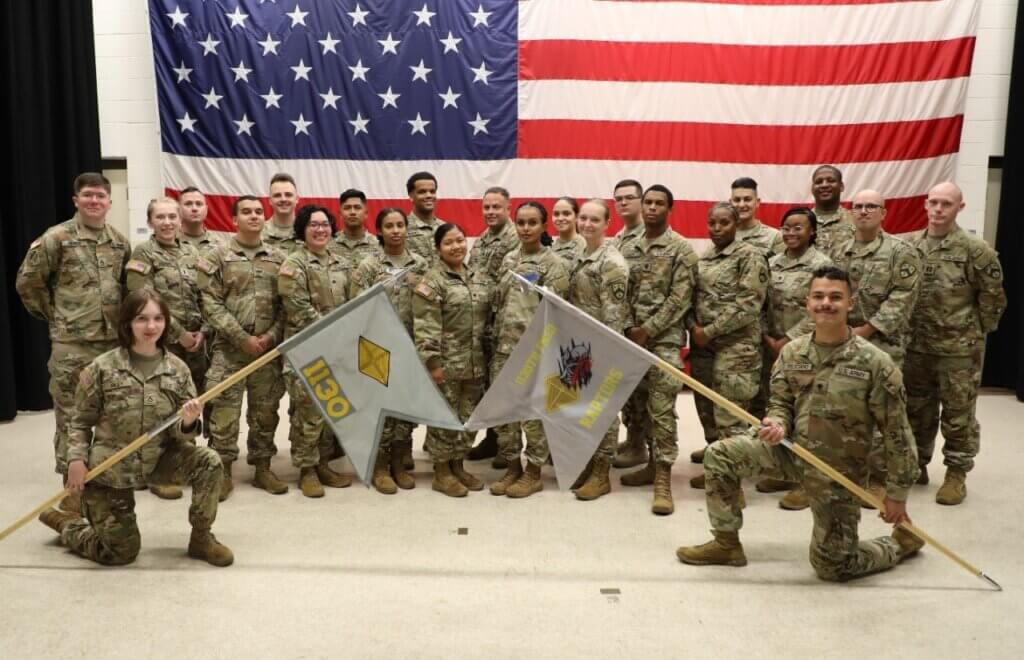Approximately two dozen guardsmen from the Tennessee National Guard’s 1130th Finance Management Support Detachment embarked on a year-long mission to the Middle East to support finance-related tasks for other forward deployed units.
“We have an incredibly professional and well-trained team,” said Capt. Jeffry Rennert, commander of the 1130th Finance Detachment, in a press release. “We have been working hard to prepare for this mission over the past year, and I could not be any prouder of what my Raptors have accomplished to get ready.”
One of those Raptors, named after the unit’s mascot, is Spc. Elisabet E. Mendez, a finance management technician specializing in the field of disbursing. She and her colleagues are trained to process soldiers’ pay, provide debt management assistance, manage accounts for all American and coalition forces in theater, execute funding agreements with contractors and commercial vendors, and protect the Army’s financial assets.
If it involves money, in other words, Mendez and the 1130th are on it.
“My job is crucial to deployment, because we ensure that soldiers don’t have to worry about their family back home and just focus on their roles,” said Mendez, who is also a full-time student majoring in finance. “They will not have an issue with receiving the money that they have worked for, which will also keep their family financially stable.”
The Nashville-based detachment left Tennessee in early September, with a few weeks spent training at Fort Cavazos, Texas, before departing for Kuwait. Mendez said the sorts of questions she fields from soldiers revolve around saving money, understanding pay and how to pay off debt.
The best way to address the latter, she said, is preparation, education and discipline.
“Soldiers need to prioritize their needs and leave the wants to the end,” Mendez said. “Every individual needs to learn how to save and invest their money on a project that will generate more assets.”
Spc. Andres Feliciano-Torres, a military pay technician with the 1130th, said it’s not usually the big, obvious obstacles that trip guardsmen up financially.
“The most common mistake I see in military pay is the small, tedious things, such as not using the most recent versions of a form,” he said. “Also, having proper signatures and date stamps that can cause kickbacks, debts and issues during audits.”
Though financial matters might seem unexciting, they are still mission-critical to any deployed soldier, Feliciano-Torres said.
“It is crucial what we do, because it is difficult for a deployed service member to focus on the mission at hand when they have pay issues causing possible issues at home,” he said. “When we at the 1130th do our job right, it allows others to have peace of mind when it comes to their pay — which will allow them to do their job right, as well.”
If Feliciano-Torres could wave a magic wand and have every guardsman understand one financial resource, it would be how the DOD’s Savings Deposit Program (SDP) works. The 10% in annual interest earned can be used to pay down debt.
“The SDP is a safe place for soldiers to deposit funds and accrue interest while on deployment,” he said.
No matter what, deployment is an ideal time to make smart financial decisions, both guardsmen said, including dealing with debt.
“The majority of military members don’t take advantage of the [financial] opportunities that the military provides, such as their school and retirement plans,” Mendez said. “But we can grow within the military and become [financially] successful.”
Tips from the 1130th for your deployment to-do list:
- Take advantage of all financial education your unit or base offers.
- Cancel or put on hold services you won’t need while gone.
- Set up autopay for ongoing bills so that you don’t miss payments, including paying down debts.
- Put someone you trust in the emergency driver’s seat of your financial affairs, such as designating a power of attorney.
- Make a plan to save and invest your deployment money to generate profit, even if it’s as simple as a certificate of deposit. Use the excess to pay down debts.
- If you have dependents, communicate clearly about the family budget beforehand. Make tweaks as your deployment goes on, if necessary.
- Establish an ongoing relationship with a financial advisor, preferably one who understands the ins and outs of Guard/Reserve finances.
- Develop the discipline to prioritize your family’s needs over their wants.
- Consider using the Servicemembers Civil Relief Act to help you lower your interest rate or get out of a lease and start a DOD SDP if you’re deploying to a designated combat zone to get higher interest rates.
- Carefully examine each LES you receive. If you get any overpayment or underpayment, say something immediately.

